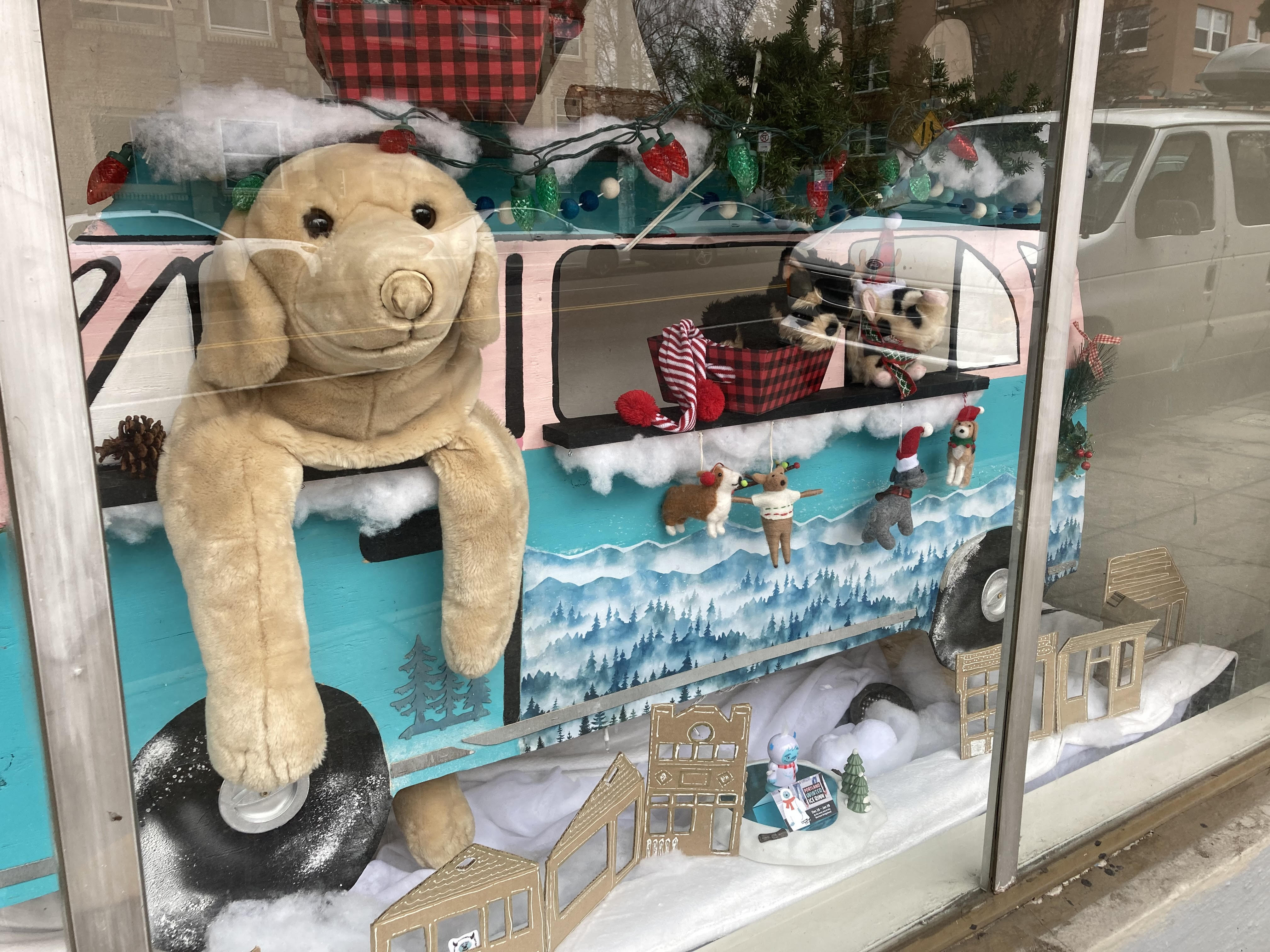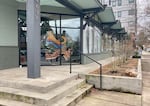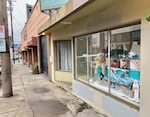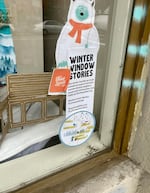
A display that's part of Prosper Portland's Window Stories in an empty storefront on Southeast Hawthorne on Dec. 28, 2023.
Kyra Buckley / OPB
In a once empty storefront, a trio of festive stuffed animals riding in a wooden Volkswagen bus now greets pedestrians along Southeast Hawthorne Boulevard between 20th and 21st avenues.
The display is among a handful of previously vacant Portland storefronts boasting new art installations as part of the city’s effort to boost foot traffic for small businesses. Prosper Portland, the city’s economic development agency, worked with Portland artist Marilyn Shawe to build neighborhood-specific window displays in a handful of shopping districts like North Williams, Southeast Hawthorne and the Cully neighborhood in Northeast.
“We know it’s a hard time for small businesses,” Amanda Park, project manager at Prosper Portland, said. “Opening a brick and mortar location is a huge investment — a leap of faith — and it takes a lot of work. As we’re navigating what retail looks like post COVID, I think we’re going to see that more art installations, activations and experiences are going to be woven into the retail scene.”

A display that's part of Prosper Portland's Window Stories in an empty storefront in the Cully neighborhood in Northeast Portland on Dec. 28, 2023.
Kyra Buckley / OPB
Park said Prosper Portland is using some of its federal pandemic recovery aid to fund the project, called Winter Window Stories. Small retailers have been hit especially hard in the last few years with pandemic shutdowns and the subsequent uneven recovery.
Data from the federal reserve bank shows retail spending has been growing at a slower pace since a spike in 2021, just after COVID stimulus checks went out to consumers. On top of that, January can be a tough month for small local shops as holiday spending dies down and fewer shoppers brave the cold and dark.
Sarah Shaoul is founder of Bricks Need Mortar, a Portland-based consulting and advocacy firm for small businesses. She surveys local businesses annually about their economic health, and early responses for the most recent poll show concerns over rising rents and difficulties finding and paying staff. Shaoul said she’s spoken with many businesses considering scaling back hours to cope with increasing costs.

A display that's part of Prosper Portland's Window Stories in an empty storefront on Southeast Hawthorne on Dec. 28, 2023.
Kyra Buckley / OPB
“When you have empty storefronts, that’s missing an opportunity to have more concentration of complementary businesses besides you,” Shaoul said. “If you don’t have someone next door drawing in people, then foot traffic is going to be significantly lower.”
Shaoul said small businesses have long valued the role art and community events have played in helping to spur economic activity.
“What do people love about Portland? They love the uniqueness,” Shaoul said. “They love the art, they love the small businesses and they love the incredible food — that’s why people come here. There’s only so much the city can do with policy, but the thing that really makes a difference and gets people excited to come and visit and get out is art.”

Artist information posted as part of Prosper Portland's Window Stories on a display on Southeast Hawthorne.
Kyra Buckley / OPB


